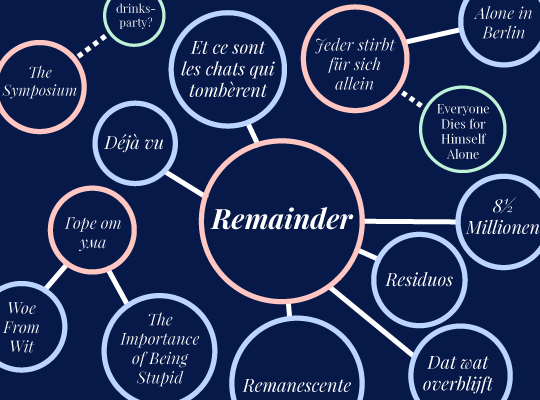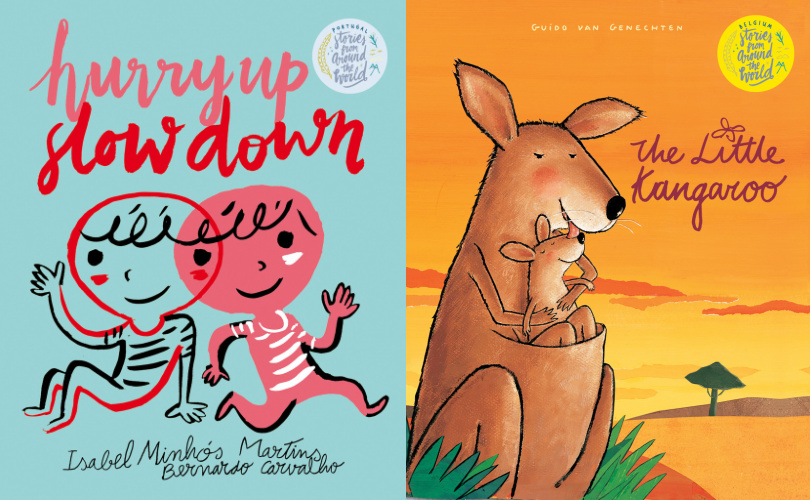Ellen Jones (criticism editor): Three of the best things I’ve read this month have been slim, 100-odd-page volumes in translation. The first is Takashi Hiraide’s The Guest Cat, translated from Japanese by Eric Selland. The book was recommended by a great lover of cats who insisted I read it in hard copy rather than on my Kindle for the hypnotisingly green feline eyes on the book’s jacket. My family has always had cats, a number of them so embarrassingly rotund—despite years of controlled diets—that we’ve had to wonder whether a well-meaning neighbour wasn’t regularly spoiling them with choice titbits from the table or bowlfuls of cream. So I found much to relate to in this quiet story of a young couple’s relationship with a local cat, whose daily visits revitalise their marriage and ignite an enthusiasm for gardening. Hiraide’s writing (he is primarily a poet) had rarely been translated before, but The Guest Cat has become a bestseller in the United States, France, and now Britain; the ubiquity and inexhaustible popularity of cat photos and videos on social media speak volumes about this book’s potential appeal. But there is so much more to it than a plot summary might suggest—it meditates on the transience of life and beauty, and masterfully maps out a domestic space with the precision of an architect. This is undoubtedly a book for cat people and dog people alike.
Monthly Archives: April 2015
What We’re Reading in April
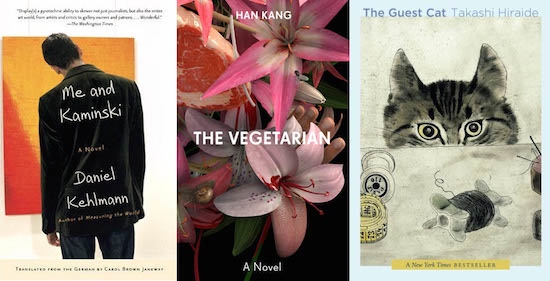
“Full of startling colours, and featuring scenes both disturbing and erotic, The Vegetarian is the most powerful novel I have read this year.”
Have I Taken Language as a Loan?

Shadab Zeest Hashmi wonders if language is "luggage," borrowed—or her very own
Home and flux mean the same in a land named after a severance, or the great “partition” of the subcontinent: a paradox of freedom-and-loss, umbilical-cord-and-scissors. Born in Pakistan, a country that emerged on the world map after the collapse of the British Raj and the largest mass migration in human history, “permanence” is forever in the shadow of exile.
If poetry seeks who we are, I’ve found myself searching in language, not land. Land, in its aspects worth remembering, becomes language. If I carry language, I carry land. What is exile, then, if not a road paved for poets, permanent wayfarers?
I came to America as a college student. In Passage Work, the first series of poems I completed as my senior thesis at Reed, I wondered: why write in English, the language of the colonist? Have I taken language as a loan for poetry? Have I betrayed Urdu? In these earliest poems, I call language “luggage,” a historical-personal luggage, both burden as well as reason for being. READ MORE…
In Review: “The Librarian” by Mikhail Elizarov
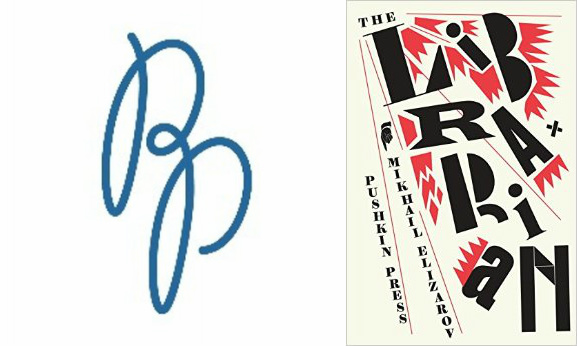
By turns absurdist, satirical, and downright funny: "The Librarian" takes a page from every book
For the most part, The Librarian is a novel about a young man in quarter-life crisis named Alexei, who is thrust into the role of the fearless leader of a secret society that revolves around a collection of “magical” books.
Borrowing from many science fiction or fantasy novels, Mikhail Elizarov’s story, translated by Andrew Bromfield, begins with some world-building. In the tone of a dry, literary historian, the narrator relates the life of a fictional Soviet writer named Gromov. To the uninitiated reader, Gromov’s books are merely badly-penned propagandist fiction, in which “Good triumphed with excruciating regularity.” Under the right conditions, however, they cause readers to become enraptured, band together, and carry out alarming acts of violence. READ MORE…
We were driving along the Sheikh Zayed Road from Abu Dhabi to Dubai, a hundred and fifty kilometres of desert back then unmarked by a single building or feature from one city limit to the next. It was the mid-1990s, and my father, an architect, had just relocated the family to the United Arab Emirates, where we joined the tribe of impermanent aliens that constitute over eighty-five percent of the country’s population and workforce. At the top of this pyramid: the Emaratis themselves, former Bedouins who shuffled back and forth between town houses and their farms in distant oases in their 4x4s, safely ensconced behind blackened glass. The couple of decades since the oil crisis in 1973 had seen the establishment of one of the world’s most lavish welfare states, whereby Emaratis were being gradually etherized with “sit-down money”—an expensive version of what has also befallen Australia’s Aborigines, among others—meaning that if your grandfather had once lived in a tent and dined on dates, bread, and salted fish, attuning his life to the rhythm of the sea and the sands, you would instead have gone to Yale on a scholarship and found a managerial post at some state-owned corporation waiting for you on your return; you might never go to the office, but that wouldn’t get in the way of your salary, your house, your satellite television. It all happened in the space of a single generation.
It was either our second or third weekend excursion to Dubai, but this one was special. My father had promised me a rare sight: a Swedish camel. They were blonde and had blue eyes, but you couldn’t inspect their irises up close, as they were even grumpier than your average camel and would probably tear away a finger or two. My father’s warning left a vivid impression. I spent the two-hour trip with my nose glued to the window as my father pointed out three or four of the beasts, barely visible in the blurry distance. “Are they really blonde?”—“Yes!”—“And blue-eyed?”—“Yes!”—“Why did they leave Sweden?”—“Because it was cold!”
*
Weekly News Roundup, 24th April 2015: Don’t Do This Title

This week's literary highlights from across the world
Happy Friday, Asymptote readers! We say this every week, but perhaps some new vocabulary might spice up your reading experience. We can certainly say that for short stories—steer clear from these overused titles (I’ve certainly read at least five pieces titled “Hunger”).
So many of us battle with the canon—or struggle against it. At the Millions, a piece about reading (and not-exactly re-reading) Russian behemoth’s epic literary tome, War and Peace (wonder what translation she was using?). In present tense, Joseph Brodsky is still making waves: here’s a look at his bestselling biography. And finally, if contemporary Russian literature’s more your thing, be sure to check out this bloggin’ run-down of recent Russian book prizes. READ MORE…
London Translation Marathon

A dispatch from the 2015 London Book Fair from Slovak literary translator Julia Sherwood
I’m still recovering from last week, chockablock with translation-related events all over London, mostly connected to the 2015 London Book Fair. This huge book marketplace can be overwhelming, and the constant talk of books as commodities rather depressing, but 3 days of panel discussions at the Literary Translation Centre provided a safe haven from the hustle and bustle, as well as a great opportunity to meet fellow translators and publishers. All the panel discussions were recorded and the videos will be available on the LBF website.
The UK Translators Association kicked off the marathon on 13 April, before the book fair even began, with Translating Around the World, a day-long seminar covering a range of topics, including a comparison of translator organisation models and translation rates in the UK, US, France, and the Netherlands; opportunities for translator training; advice on contracts, working with literary agencies, and networking with other translators (through organizations such as the Emerging Translators Network in the UK, Emerging Literary Translators Network America and—particularly interesting for those who, like Asymptote staff, are scattered around the world—the Translators Association Diaspora). “Arseholes, douchebags and wankers” made an appearance in the last, highly entertaining session entitled “Bloody aubergine or goddam eggplant?”, which compared and contrasted British and U.S. English versions of three texts from Spanish, French, and Polish.
New in Translation: 33 Days by Léon Werth
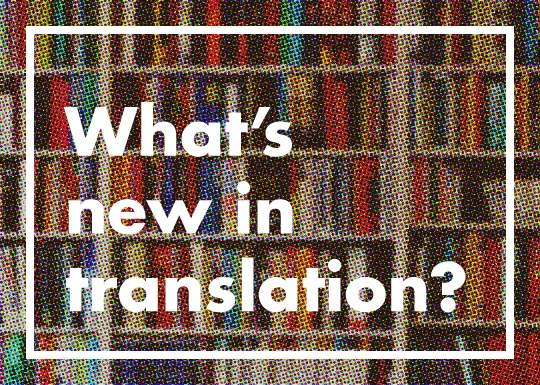
“I recount the lowly; I tell, in the immensity of this war, the stories of insects.“
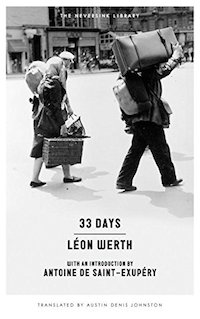 Every year, as Holocaust Memorial Day approaches, my husband and I begin looking for a film, a book, or an article with which to commemorate the day. Each year this tradition becomes more challenging and more exciting, as we move away from Hollywood epics and into the realm of small-scale, private stories. As I grow older and my mind expands, I become more interested in the minutia of this enormous tragedy: what people talked about, what mundane things preoccupied their minds, what made them laugh.
Every year, as Holocaust Memorial Day approaches, my husband and I begin looking for a film, a book, or an article with which to commemorate the day. Each year this tradition becomes more challenging and more exciting, as we move away from Hollywood epics and into the realm of small-scale, private stories. As I grow older and my mind expands, I become more interested in the minutia of this enormous tragedy: what people talked about, what mundane things preoccupied their minds, what made them laugh.
In his memoir 33 Days, Léon Werth chronicles the time he and his wife spent on the road fleeing Paris during the Fall of France in 1940. They move between farmhouses and through blockaded roads. They worry for their teenage son, who has left earlier with friends. They pilfer whatever remains in empty homes and abandoned vehicles, and sleep on hay bales. They are at war, but not in the Holocaust. They are Jews who do not yet know what their identity will come to mean.
An Acorn Gives Birth to a Tree, the Tree Gives Birth to a Fiddle
An acorn gives birth to tree, the tree gives birth to a fiddle
and you give birth to my star, so the night will be true.
You give birth to it far from here, its light belongs to me and to you,
you give birth to it where no leaf fades, nor anyone’s smile.
We haven’t been of this world for a score of silences now,
a heroic cosmos will not allow our joint death.
The earthly, the real, is real as earth and valid
and death no longer has any power over our breath.
His kingdom does not extend to the green Tree of Life,
what is past has not passed, time is not yet ripe.
Escaped from the clamor, our silence is love,
new images stream from the weeping eye of the soul.
The paired twitch of two silences in one
approaches perfection on a rung of its own.
This wonder-without-a-name tells of its deeds,
the language of atoms has a folksong’s simplicity.
*****
Weekly News Roundup, 17th April 2015: International Excellence!

This week's literary highlights from across the world
Happy Friday, Asymptote friends! We’ve announced it on the blog already, but still can’t stop celebrating at Asymptote having won the London Book Fair’s International Excellence Award for International Literary Translation Achievement. After Indiegogo campaigns, calls for submissions, and projects spanning the entire globe in words, it feels good to be honored.
The prize—and big-time book event in London—couldn’t come at a better time, especially with the slightly disheartening release of translation statistics in the United Kingdom via Literature Across Frontiers. And at the NYBlog, Tim Parks asks if there simply is too much published fiction nowadays—one thing is certain: there isn’t enough translated literature in the English-speaking biblioglobe (not in the slightest!). And if we’re going to data-analyze the literary scene, why not the literature itself? Here’s how computer-driven literary analysis is changing (and how it’s still limited). READ MORE…
“What do I call it though?” My friend was quick with her response: “What about Déjà Vu?” “Yeah, that would make a great title,” I sighed, “but it’s already been used for an Italian edition. That would be plagiarism.” The book we were trying to christen was Remainder, by Tom McCarthy. Having translated the novel into Russian on spec, I had just heard from Ad Marginem, a Moscow-based publisher: they liked it and wanted to publish it; I went over the text and was happy with it; the only thing missing was a decent title. “Остаток”, the Russian word for “remainder”, wouldn’t do: although it captured the main meaning—what remains, is left over or still to come—it sounded feebler than the original, didn’t have the same ring to it.
When you are about to start translating a piece of writing, even a straightforward one, like a bus timetable, you may be excused for not having a working title in mind, but when you get to the end you are reasonably expected to have come up with some idea. You should know by then what the original title is meant to reflect: the contents of the book, the zeitgeist, practicalities of publishing, the author’s stance or something else. As a translator, you should also realise that your task is not to translate the title into a different language, but into a different culture that, apart from its linguistic aspect, has many other dimensions. This applies not just to the title, of course, but also to the entire work, be it an avant-garde novel or a pudding recipe, a love poem or a price list. READ MORE…
Asymptote Honored at London Book Fair 2015
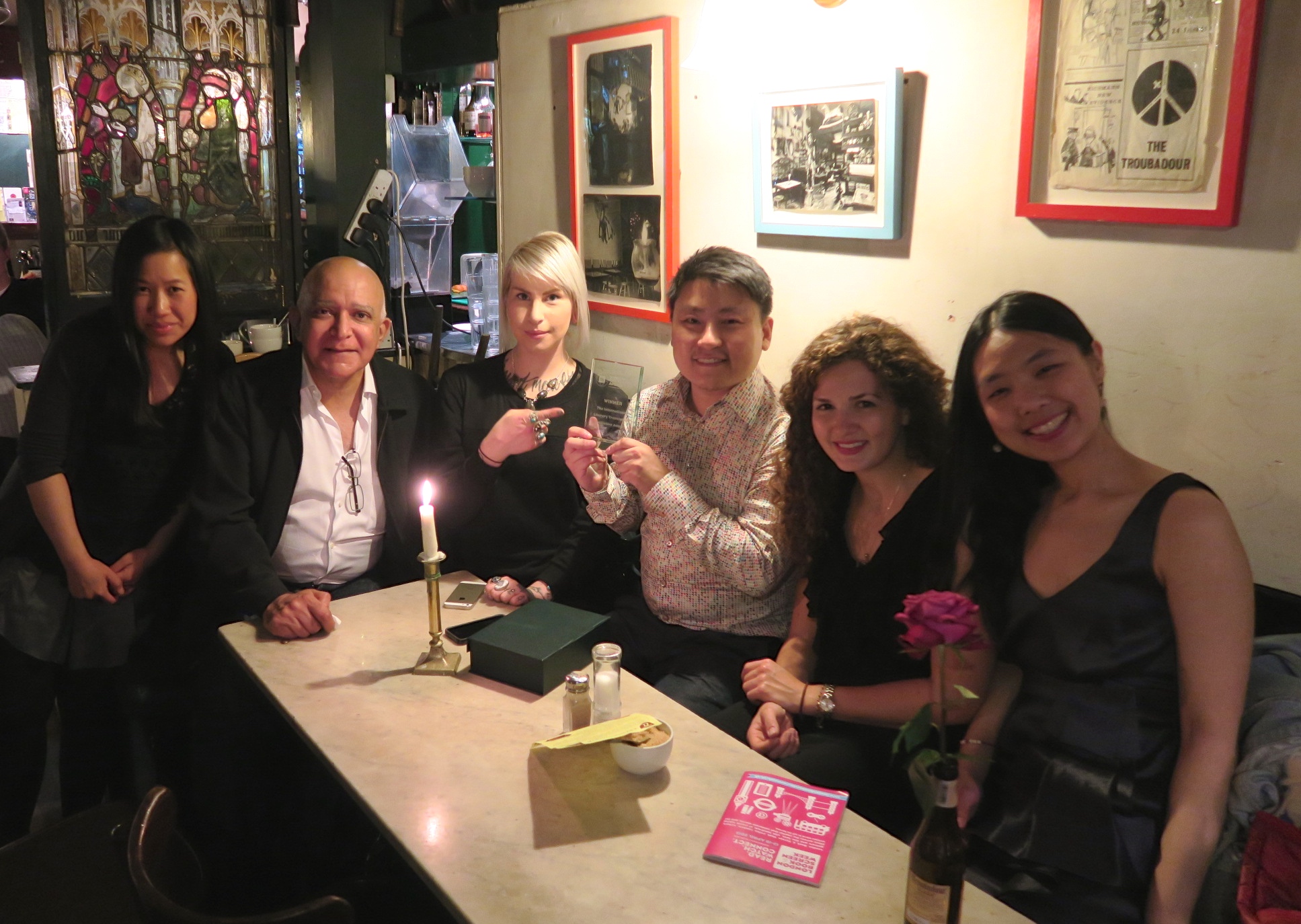
Spoiler alert: we won the International Translation Initiative Award!
Greetings from sunny London!
This week is shaping up to be very exciting for Asymptote, as yesterday evening we were honoured with the 2015 London Book Fair’s International Literary Translation Initiative Award. This is undoubtedly a very momentous occasion for us, both personally and professionally, as this prestigious prize recognizes excellence in the field of literary translation, awarded to an organisation that has “succeeded in raising the profile of literature in translation, promoting literary translators, and encouraging new translators and translated works.” Not only is this the first time a Singaporean organization has been honored at the London Book Fair, but also the first time Singapore has been represented altogether. READ MORE…
Epigram Books is a Singaporean independent publisher best known for the middle-grade series The Diary of Amos Lee, translations of Singapore’s Cultural Medallion winners, and new editions of out-of-print classic Singaporean novels. Epigram Books also publishes children’s picture books, plays, graphic novels and cookbooks.
Nearly fifteen percent of Epigram Books’ list is works in translation and its list of picture books, the Stories from Around The World series, features contemporary titles handpicked by Publisher and CEO Edmund Wee. Most recently, Epigram Books translated The Little Kangaroo by Guido van Genechten (from Dutch) and Hurry Up, Slow Down by Isabel Minhós Martins and illustrated by Bernardo Carvalho (from Portuguese) to English.
I spoke to Wee in Epigram Books’ Toa Payoh office.
How did Epigram Books’ Stories from Around the World series start?
Epigram Books wanted to introduce English-language books that were not books from the U.S. or the U.K. to Singaporean readers.
Once I started looking at books published in other languages, I discovered so many good ones! Obviously, I couldn’t bring them all to this market, so I selected a few, found translators in Singapore, and released our first titles. READ MORE…
Translation Tuesday: “The Seafarer,” from the Book of Exodus
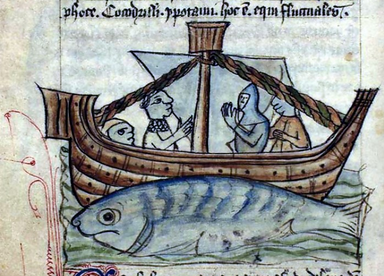
Translated from the Old English by Spenser Santos
The Seafarer
May I utter truth for myself,
to say of trials, how in the times of toil
I often withstood wearisome times,
bitter breastcare, how I have bided,
come to know on a ship, abode of much care,
the terrible seawave’s rolling often held me there,
anxious nightwatch at the boat’s prow,
when it pitched against cliffs. Pinched by cold
were my feet, frostbound
with cold fetters, there the sighs of care
were hot around the heart; hunger tore from within
the mereweary mood. That the man,
to whom the most pleasant on earth befalls, knows not
how I, wretched and sorrowful, on the ice-cold sea
dwelled in winter in the paths of an exile,
bereft of beloved kinsmen and
hung with icicles; hail flew in showers.
There I heard naught but the sea to roar,
the frigid wave. Sometimes the swan’s song
did I take for entertainment, the gannet’s cry
and curlew’s sound for men’s laughter,
the seagull’s singing for mead.
Storms there beat the stony cliffs, where
the tern, the icy-feathered one, answers him,
very often the eagle screamed round about,
the dewy-feathered one; not any protecting kinsmen
could comfort the wretched spirit. READ MORE…




